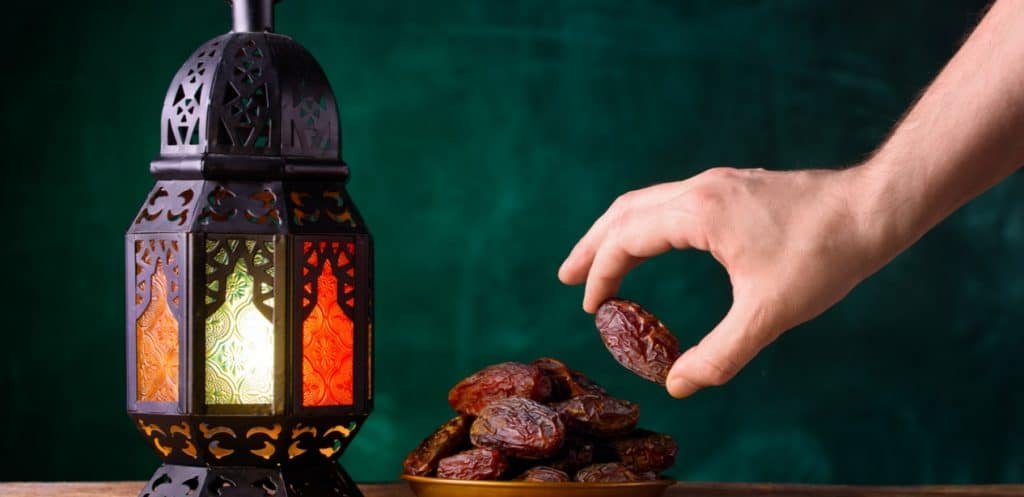…So whoever from you is sick or travelling, then the numbers should be made up from other days. As for those who find it difficult, then they should feed a poor person (for every day)… (Sūrat al-Baqarah, 2:184)
Those who have a temporary excuse
These are people who have a temporary excuse from fasting in Ramadan and are temporarily not-obligated to fast:
This is of three levels:
- If fasting will not affect his illness at all, he must fast. An example of this is a person who has a light cold, fasting will not affect his condition at all.
- If fasting will affect the person’s illness or is difficult for him – but it will not harm him – then it is disliked (makrūh) for him to fast and it is recommended that he does not fast.
- If fasting is going to harm the person, such as a person who suffers from severe diabetes, then he is not allowed to fast as it is not permissible to do things that will harm oneself. The Prophet (s) said, ‘There should be no harm nor reciprocating harm.’
Traveller
Likewise the person who is travelling has the option to fast or not and there are a number of situations:
If it will not be difficult for him and will be quite easy for him to fast: in this case it is better for him to fast based on the fact that the Prophet (s) did this.
Abū Dardāʾ said, “We were with the Prophet (s) on an extremely hot day in Ramadan such that one of us would put his hand on his head because of the severity of the heat. None among us were fasting but the Messenger of Allah (s) and ʿAbd Allah b. Rawāḥah.” (al-Bukhārī and Muslim)
So the Prophet (S) fasted as it was easy upon him, because he would choose that which is easier upon himself. Also, it is better because he would have completed his fasts quicker without having to be indebted by having to make up the fasts later. Also, he gets to fast during Ramadan, which is a virtuous and blessed month. Because of these reasons it is better for the one who finds fasting easy during travelling to fast. However, if he does not wish to fast, he still has the option not to. This is the opinion of Imam al-Shāfiʿī.
If fasting will be difficult for him but will not harm him; in other words, it is easier for him not to fast while travelling: in this case, it is better for him to break the fast and make it up later on, after Ramadan. This is because Allah has given a concession to travellers and they should accept that.
If the fasting will harm him or will be extremely difficult for him: in this case it is not permissible for the traveller to fast and he should break his fast and make up for it after Ramadan. The proof of this is that when the people complained to the Prophet (s) that fasting was difficult for them and that they were waiting to see what he does. He then called for a container of water after ʿAṣr while he was on his camel. He took the container and drank the water while the people were watching him. Then it was said to him that some people are still fasting. He replied, “They are the sinners; they are the sinners.” So the Prophet called them sinners for fasting when it was very difficult for them.
Menstruating / post-childbirth bleeding
It is ḥarām for them to fast in Ramadan.
If a menstruating woman becomes pure in the middle of the day, then she doesn’t need to fast for the rest of the day, but should make up for it later on.
Pregnant and breast feeding woman According to the majority of the scholars of Islam, these women are similar to those who have a temporary lack of ability to fast in Ramadan. As a result, they should make up for the fast when able.
Miscellaneous temporary excuses
Those who are fighting for their lives in combat zones.
Those who are deeply in need. Eg: doctor performing a long and serious operation etc.
Those who have a permanent excuse
The elderly and frail of health, and the terminally sick etc.
The elderly or the terminally unwell person (i.e. who may never recover from sickness) who cannot fast must feed a poor person for every day not fasted.
If he dies before the people have been fed, then the money for feeding the poor must be taken out of his estate before inheritance is distributed.
This is because fasts cannot be made up as they do not expect to recover from their illness or be ‘cured’ from old age. Therefore, they should feed a poor person for every fast that is missed. It has been reported that when Anas (r) grew old and was over 100 years old he would not fast. On the first night of Ramadan he would gather 30 poor people and feed them. This shows the acceptability of feeding 30 poor people in one go, either at the start of Ramadan or the end.

